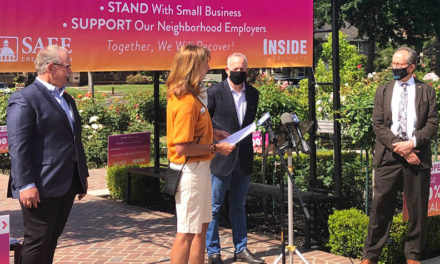Virus Doesn’t Stop Worker Rights
How laws impact wages and jobs in crisis.
By R.E. Graswich
March 2020
First came the coronavirus. Then came the law.
As the pandemic closed schools, stores, restaurants and offices, lives were upended and legal questions raised. Drew Lewis, an employment attorney in Roseville, began fielding calls from clients—some who issue paychecks and others who cash them.
“People don’t know what to do,” he says. “It’s going take some time to settle in.”
While lawmakers rush to address the crisis, Lewis notes there are already at least 10 federal and state laws that provide wage replacement and job protections for employees.
“In my experience, most employees and employers are not aware of the various programs available to help them,” he says.
Most of the programs have long existed, such as unemployment insurance and worker’s compensation. Unemployment insurance provides up to $450 per week for people who have lost their jobs or have reduced hours. Worker’s comp helps people injured on the job.
There’s also paid family leave, which allows seriously ill workers (or those who care for seriously ill family members) up to $1300 per week for six weeks, extended to eight in July. Paid sick leave protects workers who may come down with virus-related illnesses.
Other laws don’t replace wages, but they prevent people from losing their jobs if they become sick, such as the Fair Employment and Housing Act and the Family and Medical Rights Act.
In the pandemic’s early stages in California, Lewis saw coronavirus target two specific categories of workers and employers—service workers and small business owners. “By and large, we haven’t seen white-collar workers losing their jobs,” he says. “But the restaurant worker and small-business operator who owns a bar or a restaurant, they have been heavily impacted.”
Early legislative efforts focused on helping major industries such as airlines and hotel corporations, along with individual workers. Largely overlooked in the chaos have been small-business owners.
“There’s not a whole lot of resources for employers right now,” Lewis says.
The attorney advises business owners to work with their landlords or banks and negotiate extensions if they can’t pay their monthly obligations.
“Generally speaking, there’s no good reason for a landlord to evict someone who has been running a viable business and paying rent on time,” he says. “It’s much better to work with a tenant who is closed down because of the coronavirus, rather than try to kick him out. Where are you going to find a new tenant?”
Lewis is posting updated COVID-19 information for workers and employers on his website, drewlewis.law.
















